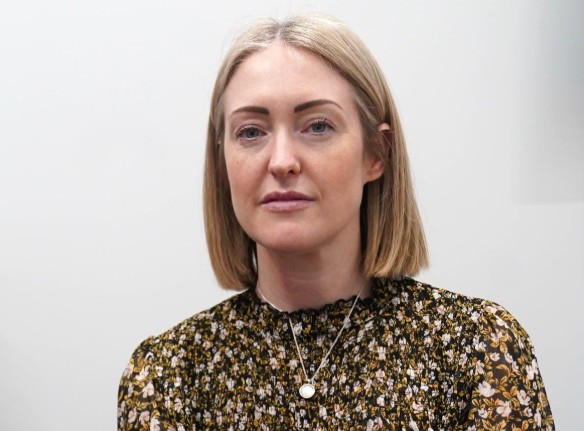Mother of Brianna Ghey Joins Kate Winslet in Push for School Smartphone Ban
The mother of Brianna Ghey has joined forces with Oscar-winning actor Kate Winslet to demand a nationwide ban on smartphones in schools.
Together, they argue that current government advice leaves children exposed, creating what they call a “postcode lottery” for families.
Esther Ghey, mother of the murdered Warrington teenager, has become a vocal advocate for stricter rules.
She believes that her daughter’s tragic story highlights the dangers of unchecked phone use among schoolchildren.
“There were 120 safeguarding issues around Brianna’s phone use, which ranged from child sexual exploitation to the issues around her eating disorder and self harming,” she said.
“There were also 116 behaviour incidents logged, which [included] Brianna going to the toilet to film TikTok videos, refusing to put a phone away in class and refusing to go into class because she just wanted to go and sit in the exclusion unit on a phone.”
Brianna, a 16-year-old transgender girl, was killed in February 2023. Her mother recalls how her daughter became “sucked away from society and into the online world where she was at risk of so many harms.”
The call comes as children in England and Wales head back to classrooms this week. Ghey and Winslet are backing the Smartphone Free Childhood campaign, which is urging ministers to take decisive action.
Despite government guidance introduced earlier this year, research shows only 11% of secondary schools enforce a full ban. The majority rely on partial restrictions, often allowing students to keep phones in bags or use them at certain times.
Campaigners say this inconsistency fails to protect children. In their open letter to Prime Minister Keir Starmer and Education Secretary Bridget Phillipson, they wrote: “Most schools are relying on children to resist a temptation even adults struggle with. It’s not fair, and it’s not working.”
Winslet, who recently played a mother grappling with the effects of social media in I Am Ruth, added: “Every child deserves to be in classrooms that are free from the distraction and highly addictive nature of smartphones.
A statutory ban would be a vital step towards protecting the mental health of young people and preserving every child’s right to realising their fullest potential during these precious and integral years.”
The campaign has attracted high-profile supporters. Actor Stephen Graham, singer Will Young, former boxer Frank Bruno and Mumsnet have all voiced their backing.
American author Jonathan Haidt, whose book The Anxious Generation links smartphones to rising child mental illness, is also lending his voice.
Some schools, including Birchwood Community High School where Brianna studied, have already introduced lockable pouches to store phones. Teachers there reported an immediate difference, with pupils talking, laughing and engaging more face-to-face.
Esther Ghey reflected on this, saying: “The teachers had noticed how noisy the dinner hall became as children socialised face-to-face, laughing, joking, probably some of them were arguing, but this is all part of growing up and figuring out how to live in society.”
So far, the government has resisted a blanket ban. Ministers argue that headteachers should retain flexibility.
Earlier this summer, Technology Secretary Peter Kyle said schools must be free to decide how best to implement the rules but hinted that stronger intervention could follow if necessary.
Downing Street and the Department for Education have been approached for further comment.
For Esther Ghey, the message is clear: stronger laws could prevent other families from experiencing the pain hers has endured.






